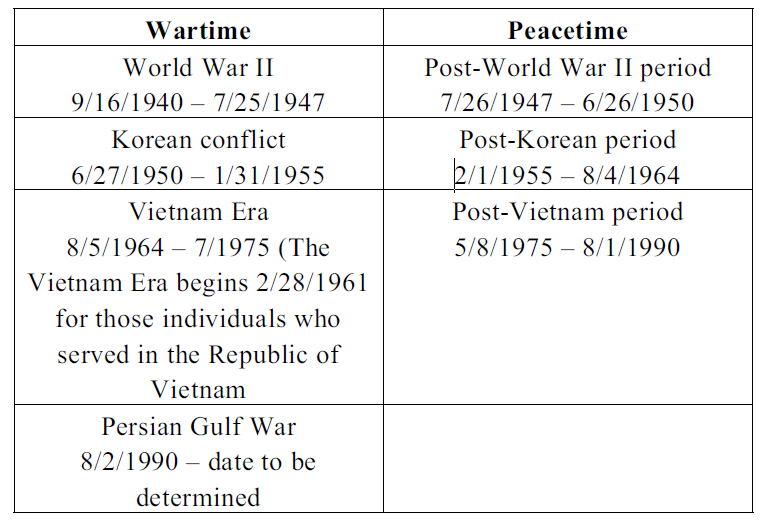VA Loan Entitlement Options for Military Couples Are you and your spouse both serving—or have…
How to Secure a VA Construction Mortgage for Your New Home
Looking to build your dream home as a veteran? A VA construction mortgage can help you get started with no down payment and no PMI. This guide walks you through the benefits, eligibility, and steps to secure a VA construction mortgage.
Key Takeaways
- VA construction mortgages offer benefits such as no down payment and the elimination of Private Mortgage Insurance (PMI), making them an accessible option for eligible veterans.
- Key eligibility criteria for VA construction loans include a minimum credit score of 620, a debt-to-income ratio of less than 41%, and proof of steady income over the past two years.
- There are two main types of VA construction loans: Single-Close Loans, which streamline the process with a single closing, and Construction-to-Permanent Loans, which involve two closings but offer flexibility.
Understanding VA Construction Mortgages

VA construction mortgages serve as a vital financing solution for building custom homes for eligible veterans. These loans are specifically designed to cover the costs associated with constructing a new, personalized home. Unlike traditional construction loans, VA construction mortgages often come with compelling advantages that make homeownership more affordable and streamline the construction process.
One of the most notable benefits of VA construction loans is that, generally, no down payment is required. This feature alone makes these loans highly attractive to veterans looking to build their dream homes without the burden of upfront costs. Additionally, the streamlined process ensures fewer financial hurdles and a smoother path to homeownership.
Moreover, VA construction loans eliminate the need for Private Mortgage Insurance (PMI), reducing the overall cost of financing. This is particularly beneficial for veterans who may not have substantial savings but still wish to invest in a high-quality, custom-built home. Recognizing the unique advantages of VA construction loans helps veterans appreciate the value these loans bring to their home-building journey.
Key Eligibility Criteria for VA Construction Mortgages
Securing a VA construction loan involves meeting specific eligibility criteria designed to ensure borrowers are financially capable of managing the loan. First and foremost, veterans must have a credit score of at least 620 to 640 to improve their chances of eligibility. This requirement helps lenders assess the borrower’s creditworthiness and ability to repay the loan.
Another critical factor is the debt-to-income ratio, which should be less than 41% to qualify for a VA construction mortgage. This ratio ensures that borrowers do not have excessive debt relative to their income, making them more likely to manage their mortgage payments effectively. Additionally, applicants must demonstrate two years of steady income and employment history to prove financial stability.
Borrowers must also not have filed for bankruptcy in the previous two years. The completed home must serve as the borrower’s primary residence, and eligible properties include single-family homes, certain condominium units, and manufactured homes. These criteria are vital for veterans seeking to benefit from VA construction loans.
Types of VA Construction Mortgages
VA construction loans come in two primary types: Single-Close Loans and Construction-to-Permanent Loans. The Single-Close Loan combines construction financing and the permanent mortgage into one loan with a single closing, streamlining the entire process. This type of loan is highly beneficial for veterans as it reduces both costs and paperwork.
On the other hand, Construction-to-Permanent Loans require two loan closings — one for the construction phase and another for converting to a permanent mortgage. This option provides flexibility but involves more steps and potentially higher costs.
Regardless of the type, VA construction loans typically offer competitive interest rates and eliminate the need for Private Mortgage Insurance (PMI), making them an attractive financing option for veterans.
Steps to Obtain a VA Construction Mortgage
Securing a VA construction mortgage requires several important steps. First, eligible veterans must obtain a Certificate of Eligibility (COE), which serves as proof of their entitlement to VA benefits.
The VA One-Time Close Construction Loan is a popular option that combines financing for construction, lot purchase, and the permanent mortgage into a single loan with one closing, eliminating the need for multiple closings and reducing overall costs. Locked-in interest rates before construction begins provide stability for borrowers, especially when working with a construction and valuation unit.
Despite the streamlined process, VA construction loans can be complex, requiring careful preparation and understanding of VA loan requirements to ensure a smooth application process. Let’s break down these steps further.
Obtaining Your Certificate of Eligibility
The first step in securing a VA construction mortgage is obtaining a Certificate of Eligibility (COE). This document is essential as it proves your entitlement to VA benefits and is required by lenders to proceed with the loan application. Veterans can request a COE online through the VA’s eBenefits portal, through their lender, or by mailing a specific form.
Active-duty service members need a signed statement of service from their commanding officer to apply for a COE. Getting the COE early in the process streamlines subsequent steps, ensuring you have the necessary documentation to proceed confidently.
Finding a VA-Approved Lender
The next key step is finding a VA-approved lender. Not all lenders offer this specialized service, so it’s essential to search for those who do. Look for lenders that specialize in both construction loans and VA loans to ensure they understand the specific requirements and can navigate the complexities of VA financing.
Local banks, credit unions, and major VA lenders are viable options for obtaining VA construction loans. Working with a VA-approved lender ensures that all aspects of the loan comply with VA regulations, making the process smoother and more efficient.
Preapproval Process
Securing a VA construction mortgage involves a critical preapproval process. This process typically requires documentation of income, employment history, and creditworthiness to ensure you meet both VA and lender-specific credit standards. Providing income verification, tax returns, and other necessary documentation can expedite the preapproval process.
Fulfilling these requirements boosts your chances of securing the loan and helps establish a clear financial picture for both you and the lender.
Once preapproved, you can confidently move forward with the construction process, knowing you have the necessary financing in place.
Working with VA Registered Builders
Selecting the right builder is vital when using a VA construction loan. Only builders registered with the VA can participate in the VA Loan Guaranty Program, which is essential for using VA financing. Working with a builder experienced in both construction and VA loans can reduce complications and ensure compliance with VA standards.
To verify a builder’s VA registration, access the Lists of VA Registered Builders through the Veterans Information Portal. An experienced va builder id number can navigate the complexities of VA financing, ensuring a smoother construction process and helping you avoid common pitfalls. Additionally, you can check the builder ids for further verification.
The Construction Phase
The construction phase is a crucial part of the process, where funds are released in stages as construction progresses. These releases are contingent upon successful inspections at critical phases, such as after the foundation is laid and upon completion of framing. Regular communication with lenders and builders can help mitigate issues and delays, ensuring a smooth construction process.
The final inspection ensures the home adheres to the construction plans and meets all VA property requirements. Planning for unexpected delays and maintaining a budget cushion can alleviate stress during construction, making the entire process more manageable.
Converting to a Permanent VA Mortgage
Once the construction is complete and the final inspection is passed, the next step is converting the construction loan into a permanent VA mortgage. This transition is necessary to finalize the financing and secure your new home. The conversion process can be complicated and may require significant time to complete, but it’s a crucial step to ensure your home is fully financed under the VA program.
This final phase completes the financial aspect of your home and marks the beginning of life in your custom-built home, fully financed with VA benefits.
Common Challenges and How to Overcome Them
Securing a VA construction loan comes with its set of challenges. One common issue is the difficulty in finding lenders that offer these specialized loans. Veterans facing this problem should consider alternative financing options or expand their search to include local banks and credit unions.
Another challenge is navigating the complexities of the loan process itself. Preparing all necessary documentation early on helps mitigate these issues. By being proactive and informed, veterans can overcome these challenges and successfully secure a VA construction loan.
Alternatives to VA Construction Mortgages
While VA construction loans offer significant benefits, some veterans may explore alternatives like FHA loans or conventional loans. FHA loans require a minimum down payment of 3.5%, which is higher than the no down payment typical of VA loans. However, FHA loans can be a viable option for those who prefer not to use their VA home loan entitlement.
Conventional loans are another alternative but often involve stricter credit and down payment requirements. Each option has its pros and cons, and veterans should carefully consider their financial situation and long-term goals before making a decision.
Summary
In summary, VA construction mortgages provide a unique and beneficial financing option for eligible veterans looking to build custom homes. From understanding the types of loans available to navigating the construction phase and converting to a permanent VA mortgage, this guide has covered all essential steps. By being informed and prepared, veterans can take full advantage of these loans and achieve their dream of homeownership.
Frequently Asked Questions
What is a VA construction mortgage?
A VA construction mortgage is a loan tailored for eligible veterans that facilitates the financing of constructing a new, custom-built home. This type of mortgage supports veterans in achieving homeownership through the construction of properties meeting their specific needs.
What are the eligibility criteria for a VA construction loan?
To qualify for a VA construction loan, you must meet specific criteria, including a credit score between 620 and 640, a debt-to-income ratio of less than 41%, two years of steady income, and no bankruptcy filings in the past two years. Ensuring you meet these requirements is crucial for a successful application.
What are the types of VA construction loans available?
The two primary types of VA construction loans are Single-Close Loans, which integrate construction financing and a permanent mortgage into a single loan with one closing, and Construction-to-Permanent Loans, necessitating two separate closings. Each option serves different financing needs for prospective homeowners.
How do I find a VA-approved lender?
To find a VA-approved lender, search for lenders that specialize in VA loans, including local banks, credit unions, and recognized VA lenders. This will ensure you access appropriate financing options tailored to your needs.
What are some common challenges in securing a VA construction loan?
Securing a VA construction loan often involves challenges such as identifying lenders that provide these loans and navigating the intricate loan process, necessitating thorough preparation and familiarity with VA loan requirements.





